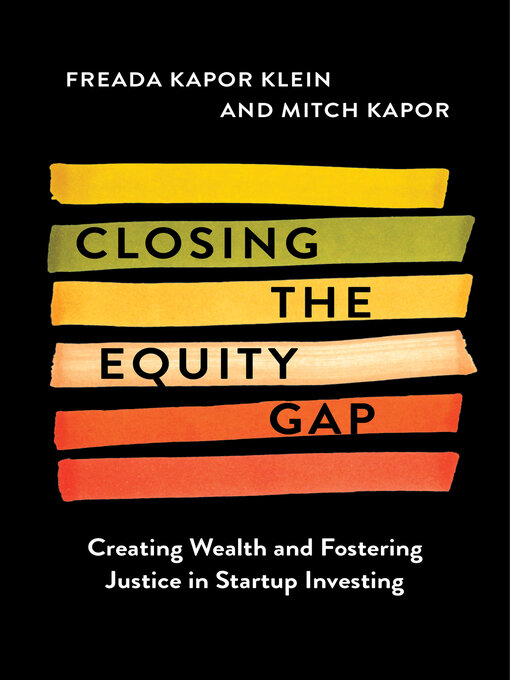A social activist and an entrepreneur remake the future of investing and business, offering a win-win road map for creating wealth and addressing inequalities by investing in groundbreaking tech companies that defy assumptions from Silicon Valley to Wall Street.
Companies backed by venture capital drive the U.S. economy, accounting for hundreds of billions of dollars in sales and profits. The problem is that most of the wealth created winds up enriching elites, while the businesses funded by venture capitalists widen economic inequality. Committed to doing things differently, tech venture capitalists Freada Kapor Klein and Mitch Kapor launched Kapor Capital to prove that investing in gap-closing startups—companies whose services or products close opportunity gaps for both communities of color and low-income communities—is good business. Over the past decade, they've broadened the definition of success to include profits and accountability for the impacts a business has on employees, communities, and the planet, helping to launch close to two hundred companies engaged in achieving social and economic justice while showing remarkable growth, with many valued in the hundreds of millions or billions of dollars.
Like every VC firm, Kapor Capital has experienced high-profile blowups and total losses. But its investing principles have created a stunning new ecosystem of Black and Latinx entrepreneurs, CEOs, and investors, all devising innovative, effective solutions to address the most pernicious problems afflicting many of America's poorest communities. In Closing the Equity Gap, Freada and Mitch share their core belief that all companies must make a positive impact and that the obstacles entrepreneurs overcome in life are a far better predictor of long-term success than the schools they attend or investment dollars they raise from friends and family.
Using stories behind some of the most remarkable companies ever launched, they show that the standard investment model doesn't work, how it can be fixed, and what the future could look like if more investors joined them.


